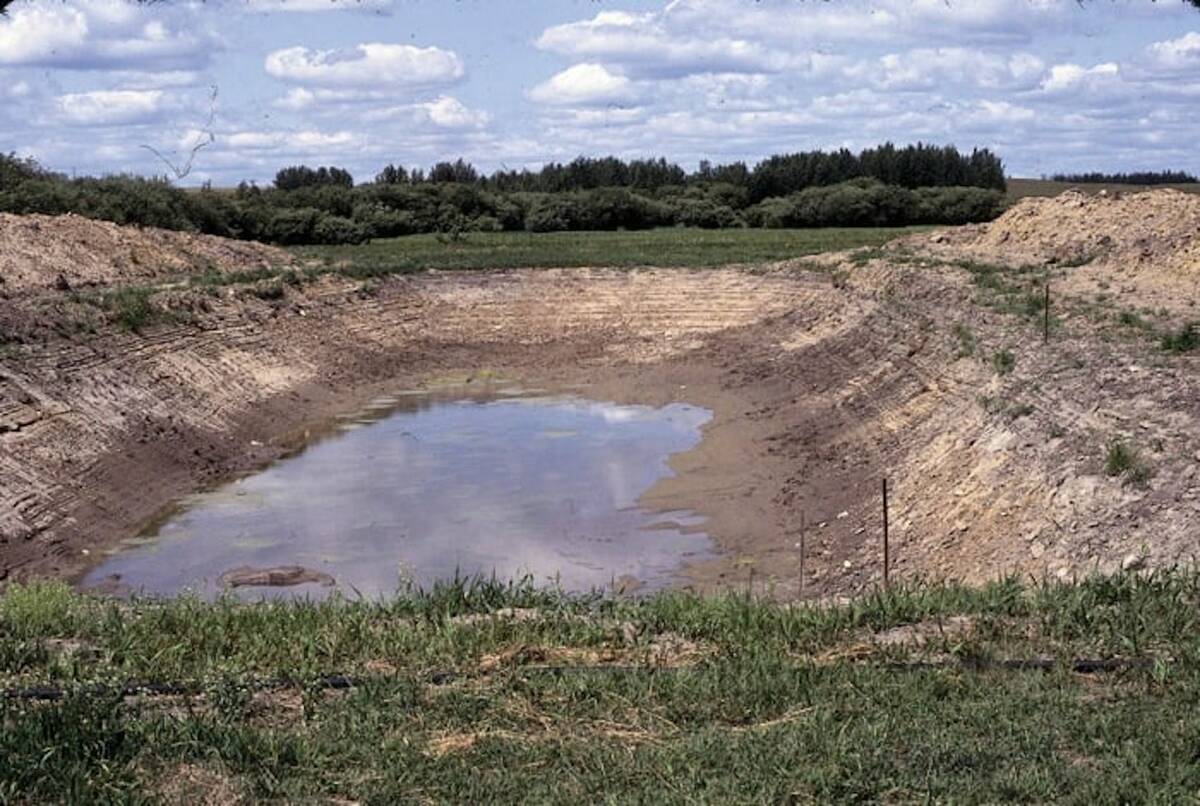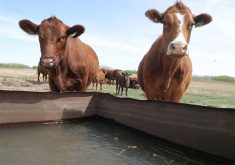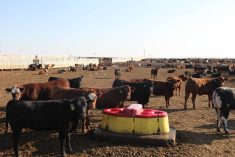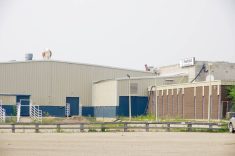David Pope and Norm Ward fall silent when asked if any endangered species live on their southern Alberta ranches.
“I’m not even going to admit they are there,” said Ward, who ranches near Granum.
Ranching families who have lived on the same land for three generations are aware which species share their land. But they prefer not to reveal the information because they fear what might happen.
“These species at risk become a liability. Your place can be regulated and you won’t be compensated. To survive, how do you deal with a liability,” said Pope, who is a High River lawyer and rancher. He also represents the Western Stock Growers Association on a provincial endangered species committee.
Read Also

Dry summer conditions can lead to poor water quality for livestock
Drought conditions in the Prairies has led to an decrease in water quality, and producers are being advised to closely monitor water quality for their animals.
There are 50,000 farmers in Alberta and each has a piece of the ecosystem. They would like it if the animals living on their land were entrusted to farmers’ care as valued assets.
“What better way than to have 50,000 people manage the ecosystem the very best they can rather than having a layer of bureaucracy that doesn’t have as high a standard,” said Ward in an interview.
The issue was discussed at the recent stock growers convention in Calgary.
The stock growers are members of the land and resource partnership, a year-old coalition that consists of 15 resource-based groups. These include the pulp and paper industry, rural municipalities, irrigation districts, Alberta Cattle Commission, wheat growers, horticulture, barley growers and the Alberta Chamber of Resources, an umbrella group for utilities, coal, heavy oil, energy and mining interests.
The coalition wants compensation, co-operation and partnership between government and land users. They meet again Dec. 1 in Edmonton.
The West holds some of the last remaining natural habitat for many species and most ranchers don’t want outsiders telling them how to manage the land or protect wild animals.
“Ranchers are extremely vulnerable because we have a large land base. It’s not very productive agriculturally, but environmentally, it’s a fantastic land resource for species,” said Ward.
They would prefer the compensation issue never be raised if partnerships and co-operation are allowed.
Bill C-65, an endangered species protection act for federally owned land, was never passed because an election was called.
Many ranchers feared a clause in the bill that allowed anyone to anonymously report the presence of a species, or complain about someone destroying habitat.
“I became unglued when I read this. One of the fundamentals of common law is being able to face your accuser,” Pope said. “It’s totally unprecedented in a free common law society.”
Federal officials who had details on the bill could not be reached for comment.
Imperial Oil lawyer Peter Miller told the stock growers annual meeting that many people are suspicious about how species make the endangered list. No one is even sure about the status of many species.
“The government recognized it had no inventory of what’s out there,” he said.
While Ottawa has focused mainly on protecting endangered species on federal lands like reservations, parks and military reserves, ranchers fear a new law could potentially affect all land since many of species travel as part of their regular territory.
As a new act develops, recovery plans are to be written for each species. There are nearly 300 in Canada but only about 12 have been written so far. The recovery plans are expected to be written six months after the act is in place.
Landowners and others affected by a recovery plan need to be included in writing the plans, said Miller.
Many groups are concerned the government is dragging its feet and may turn contentious issues over to the courts. They don’t want judges making decisions on land management preferring conciliation over disputes, said Miller. In addition, oil companies want assurances that once environmental impact studies are done, they will receive clearance to enter an area and proceed with their activities. These may include removing some habitat to build roads or a well site.
Bill C-65 says that when a species is found all development and other activity must stop.

















